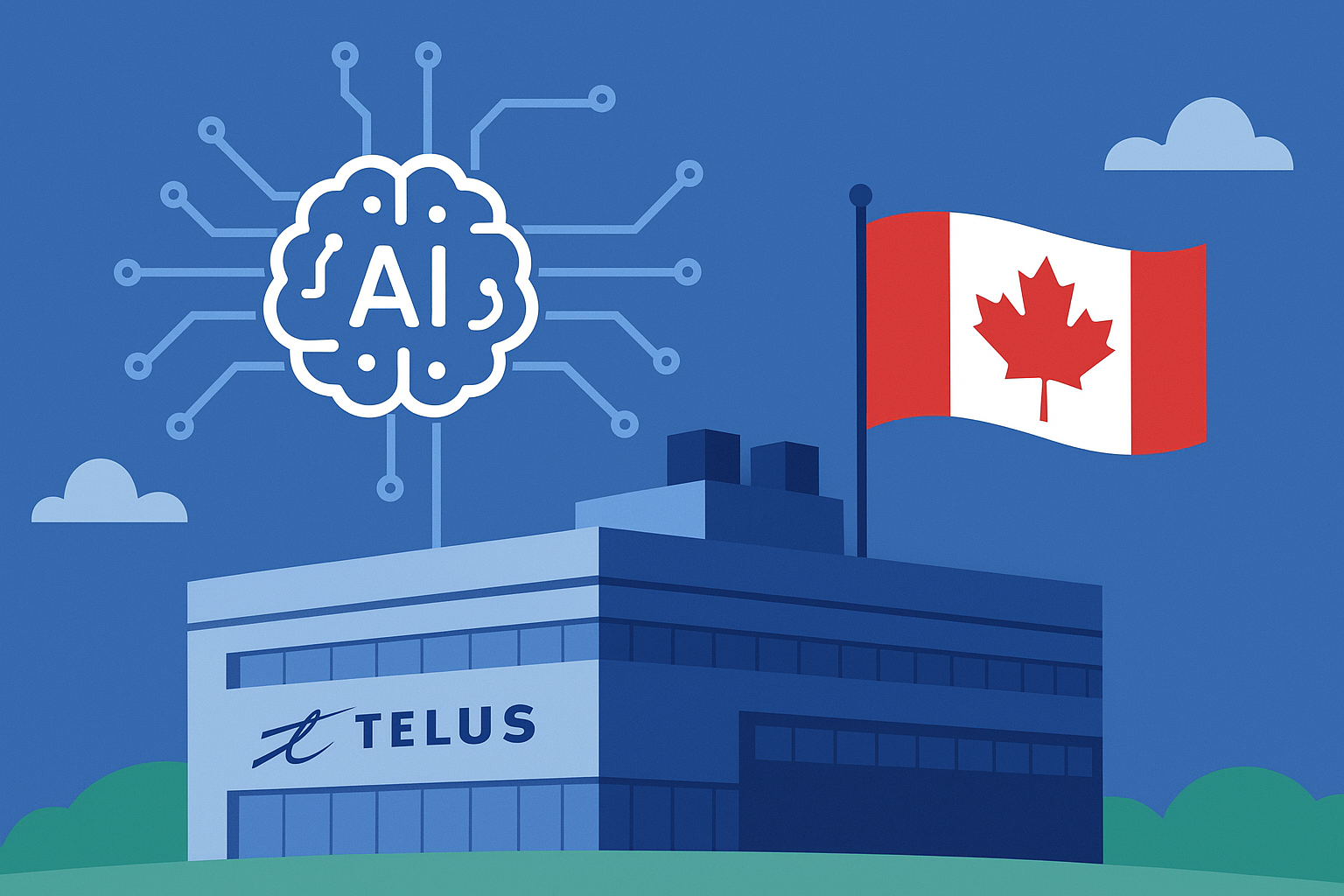AI is no longer just a Silicon Valley story—it’s becoming a matter of national strategy. In Rimouski, Quebec, Telus has officially unveiled Canada’s first “sovereign AI factory,” an infrastructure project designed to secure the country’s place in the artificial intelligence arms race. The facility, powered by 99% renewable energy and equipped with high-performance Nvidia GPUs, reflects a growing trend among governments and corporations: ensuring that AI development remains within domestic borders.
For investors, this moment is about more than just one company. It underscores a shift in the global AI race, where sovereignty, infrastructure, and regulatory frameworks are taking center stage—factors that could reshape where capital flows in the next decade.
Why This Matters for Investors
The AI boom has often been associated with hyperscalers like Microsoft, Amazon, and Google, whose cloud dominance enables them to drive AI adoption at scale. Telus’ move disrupts this dynamic by positioning Canada as a serious contender in building a localized, self-sufficient AI stack.
According to Technology Magazine, the Rimouski facility is designed not only to host Nvidia’s high-performance compute infrastructure but also to comply with Canada’s stringent data sovereignty requirements. This matters at a time when businesses, governments, and regulators are increasingly cautious about where sensitive AI data is stored and processed.
For Canadian investors, this could represent a pivotal moment. Domestic companies in cloud computing, high-performance computing (HPC), and AI hardware supply chains stand to benefit directly. For U.S. and international investors, it signals that the AI market may fragment geographically, creating opportunities in regional players who can align with local policy priorities.
The Geopolitical Angle
AI is now tightly woven into national economic and security strategies. The U.S. has already funneled billions into AI infrastructure through initiatives like the CHIPS and Science Act. Meanwhile, the European Union is pushing ahead with AI regulations that emphasize ethical oversight and data privacy.
Telus’ project echoes these efforts by anchoring AI infrastructure on Canadian soil. For Ottawa, this reduces reliance on U.S. hyperscalers and enhances digital sovereignty. For global investors, it’s another sign that AI investments can’t be viewed solely through a corporate lens—policy and regulation are becoming equally critical drivers.
Future Trends to Watch
- Incentives and Subsidies: If the Canadian government backs Telus’ initiative with tax incentives or subsidies, similar to U.S. industrial policies, the ripple effects could benefit a wider range of Canadian AI and cloud providers.
- Hardware Supply Chains: Nvidia continues to dominate the GPU market, and its deep integration into sovereign AI projects strengthens its moat. Suppliers of power, cooling, and connectivity solutions for high-performance data centers also stand to gain.
- Regulatory Shifts in the U.S.: In parallel, Reuters reported that U.S. SEC Chair Paul Atkins pledged to fast-track a proposal to scrap mandatory quarterly financial reporting, a deregulatory move that could benefit high-growth AI and tech firms by easing compliance burdens. While controversial, such changes could reshape how investors evaluate transparency and risk in AI-driven companies.
Key Investment Insight
Investors should watch for regional cloud and HPC players in Canada and North America that could ride the wave of sovereign AI strategies. Nvidia and its supply ecosystem remain core beneficiaries, but the longer-term story is about diversification: governments and enterprises building localized AI stacks to reduce dependency on U.S. or Chinese platforms.
For investors with exposure to Canadian equities, Telus’ initiative may also catalyze secondary opportunities in utilities, renewable power providers, and data-center REITs, particularly those aligned with green energy mandates.
AI is no longer an abstract growth narrative—it’s a battleground of sovereignty, regulation, and infrastructure. As Canada joins the global race with its first sovereign AI factory, investors would be wise to follow the capital flows shaping tomorrow’s digital economy.
Stay ahead of the latest investment opportunities and market-moving insights with MoneyNews.Today, your trusted daily source for financial intelligence.





